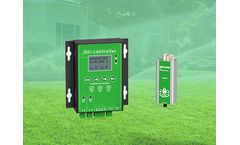Smart Irrigation Controllers Articles & Analysis
5 articles found
Farmers, landscapers, and property managers often struggle to maintain adequate water pressure in irrigation systems. Without consistent pressure, water distribution becomes uneven, leading to poor crop health, inefficient resource usage, and potential damage to the irrigation infrastructure. These issues can hinder productivity and increase operational costs, making it essential to adopt ...
They can also adjust watering schedules based on weather forecasts and historical data to ensure plants are getting the right amount of water at the right time.The role of intelligent irrigation controller in agricultural modernization:1. Water Conservation: By precisely controlling the amount of water at each plant, smart ...
Background: With the continuous development and application of science and technology, more and more fields begin to adopt automation technology to improve production efficiency and reduce costs. In the agricultural sector, automatic irrigation control systems have become a must-have device that can help farmers easily manage their fields, achieve efficient irrigation, and improve crop yield and ...
ByJXCT
There has been much recent interest in modifying root system properties to overcome the effects of soil abiotic stress on crop growth and yield (Lynch 2007; Ghanem et al. 2011). Plant root systems are usually exposed to heterogeneous environmental conditions due to vertical differences in soil moisture and strength. Strong subsurface layers of soil can confine root systems to shallower soil ...
Sebastian Braum, Ph.D., is WaterBit’s director of soil science and agronomy. He is writing a series of posts for our blog that delve into irrigation-related topics. In the piece below, he discusses deficit irrigation in wine grapes. Dr. Braum holds a doctorate in soil chemistry from the University of Wisconsin-Madison and he studied soil science, plant nutrition, agronomy and viticulture at ...
ByFarm(x)





